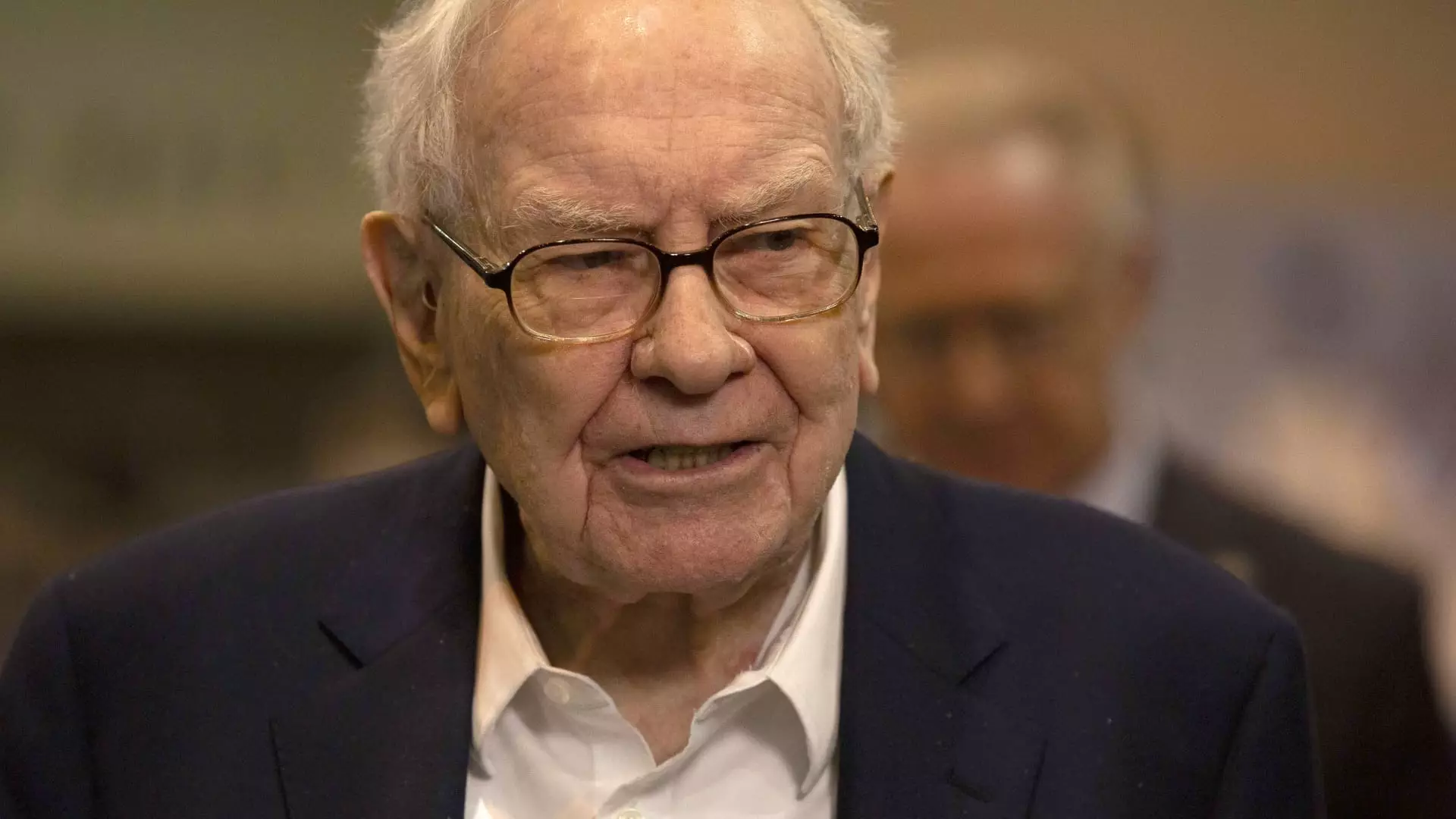The recent earnings report from Berkshire Hathaway signifies a monumental shift in strategy as the company navigates the complexities of market dynamics and macroeconomic pressures. With a cash reserve that has exceeded $325 billion, Berkshire’s financial maneuvers reflect a deliberate and cautious approach by its renowned chairman, Warren Buffett.
Berkshire Hathaway’s cash position reached a staggering $325.2 billion by the end of the third quarter, marking an increase from $276.9 billion in the previous quarter. This accumulation of cash is not merely a comfort blanket; it represents Buffett’s insight into forthcoming economic uncertainties. Holding such large reserves enables Berkshire to have transactional flexibility, especially in times of market volatility.
Buffett has long regarded cash as a critical tool in his investment arsenal, providing the company with leverage to seize opportunities when undervalued assets emerge. This aggressive cash retention can be interpreted as a cautious stance in a climate where inflation poses risks and interest rates remain unpredictable. With Berkshire’s cash fortress solidified, it creates a formidable buffer against potential downturns.
In a contrasting move to the massive cash holdings, Buffett has been liquidating substantial parts of some of his most significant stock positions, notably in Apple and Bank of America. The trend over the past four quarters has indicated a pattern of diminishing these equity investments, painting a picture of a strategic pivot rather than panic selling. Specifically, Berkshire has offloaded about a quarter of its Apple holdings and generated over $10 billion from its Bank of America stakes since mid-July.
Despite the urge to reinvest or repurchase shares — actions generally anticipated when companies have significant cash reserves — Berkshire displayed a notable restraint, forgoing share buybacks in the third quarter entirely. This decision underscores Buffett’s philosophy of only repurchasing stocks when their prices are below intrinsic value, a principle he believes is paramount to ensuring long-term returns. In an environment where Berkshire’s stock has outpaced the broader market, the reluctance to buy back shares indicates a thorough assessment of value versus cost.
Despite Buffett’s conservative selling spree, Berkshire Hathaway’s Class A shares have appreciated by 25% this year, outperforming the S&P 500, which has delivered a 20.1% return. This achievement demonstrates that even in times of significant strategic shifts, the underpinnings of Berkshire’s diverse portfolio can still deliver substantial returns. The conglomerate’s market capitalization crossed the $1 trillion mark, highlighting investor confidence in Buffett’s overarching strategy.
However, while operating earnings hit $10.1 billion, reflecting a decline of 6% from the previous year, this drop raises questions about the robustness of key business units, particularly those related to insurance underwriting. The performance speaks to a broader trend in the marketplace, where tightening economic conditions may require adjustments in business strategies to boost profitability.
Buffett’s trading decisions occur against a backdrop of fluctuating interest rates and rising fiscal deficits, elements that contribute to his cautious approach. Notable economists and investors have raised concerns regarding the United States’ ballooning fiscal deficit and the implications of potential policy changes that future administrations might implement. With many apprehensive about rising capital gains taxes to combat these deficits, Buffett’s stock trades may reflect a proactive approach to these anticipated changes.
While Berkshire Hathaway’s cash reserves soar to unprecedented heights and its strategic stock sales signal a deliberate pivot in investment philosophy, the challenges posed by the external economic landscape remain pronounced. Buffett’s careful management of Berkshire’s financial resources could position the company to capitalize on opportunities when the inevitable market adjustments unfold. The coming quarters will undoubtedly reveal whether this strategy will yield the anticipated benefits amid an ever-evolving economic climate.

